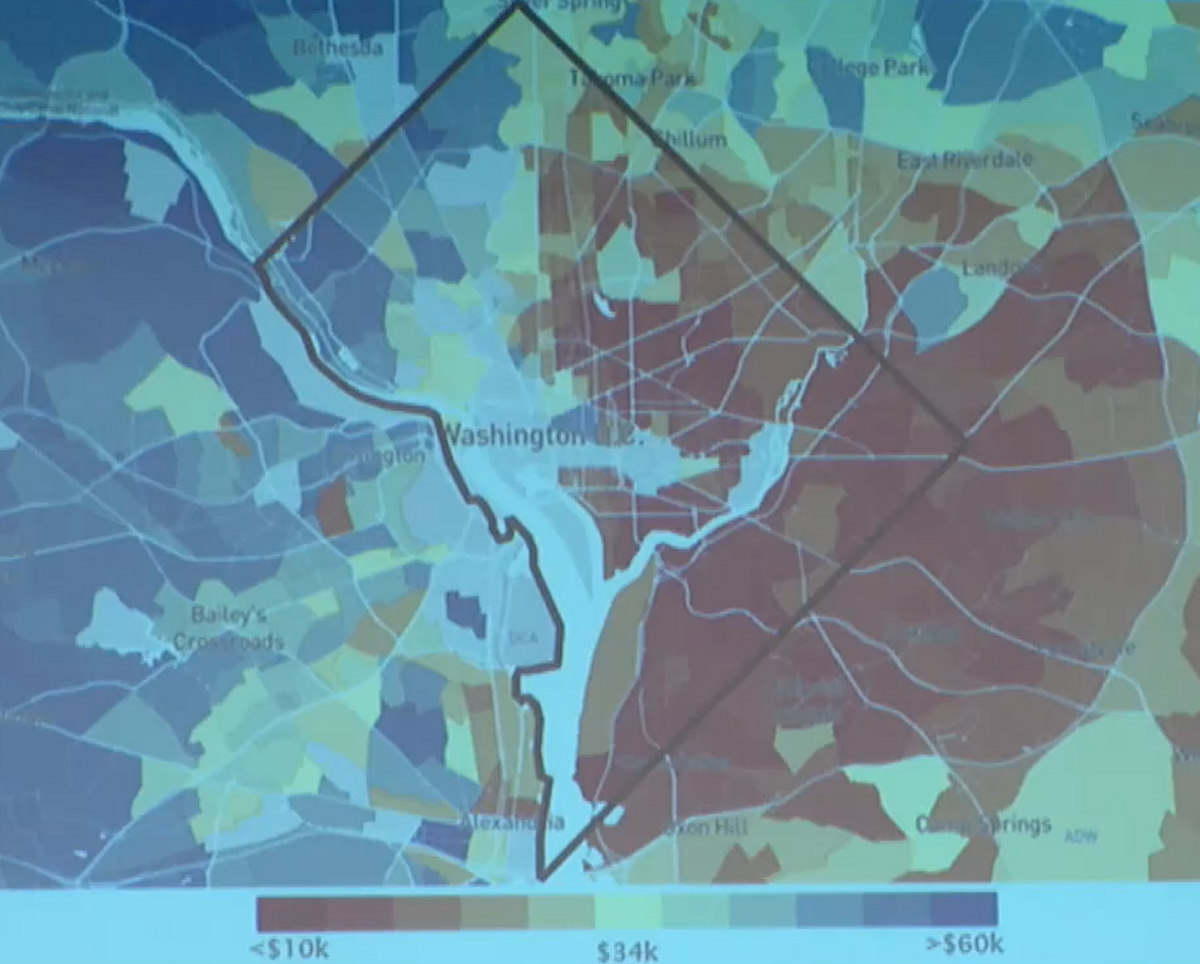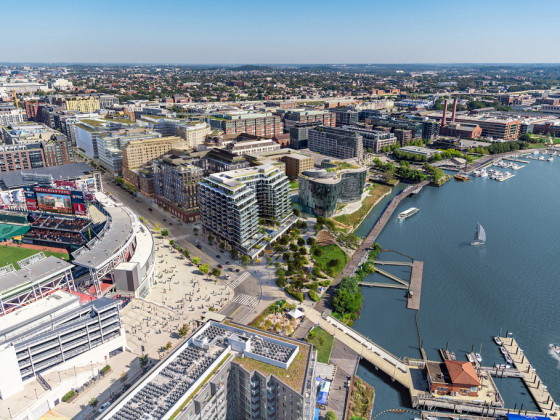What's Hot: Did January Mark The Bottom For The DC-Area Housing Market? | The Roller Coaster Development Scene In Tenleytown and AU Park
 Amid Comp Plan Conversation, DC Hosts Forum on History of Disparate Housing Distribution
Amid Comp Plan Conversation, DC Hosts Forum on History of Disparate Housing Distribution
✉️ Want to forward this article? Click here.
Update: The deadline for public comment on the Comprehensive Plan amendments was extended to January 10th; for ANC comments, the deadline was extended to February 14th.
In recent months, DC's Office of Planning has hosted a series of open houses on proposed updates to the Comprehensive Plan in DC's eight wards. Immediately following a meeting this weekend at Wilson High School in Ward 3, the city built upon that planning discussion with a forum on the legacy of housing discrimination in land use policies.
The panel "How Land Use Policies Impact Housing Opportunities in the District" could be seen as an appropriate follow-up to the Comp Plan conversation, as housing production targets announced with the Plan amendments call for an additional 1,260 residential units (including 1,990 affordable units*) in Ward 3's "Rock Creek West" planning area. This area has been resistant to additional development, inspiring an Urban Land Institute (ULI) panel to give recommendations on how to get housing built west of Rock Creek Park.
One of the ULI recommendations was for the city to undergo a campaign to educate residents about the discriminatory, and lingering, impacts of housing policies throughout history. The Land Use Policies forum, held a half-hour after the Comp Plan discussion, seems to be the first attempt to educate Ward 3 residents.
After attendees viewed the short film "Segregated by Design", Don Edwards of Justice & Sustainability Associates facilitated discussions with experts and city staff. Architect Neil Flanagan noted the history of Fort Reno (across the street from Wilson High) as a Black neighborhood before its residents were systematically pushed out. Flanagan added that the way the zoning code developed historically enabled industrial and commercial uses to encroach upon Black areas like Buzzard Point, investing in infrastructure to support non-residential uses and undermining investment in housing there.
University of Maryland associate professor Dr. Willow Lung-Amam challenged the mindset that residents of neighborhoods insulated from development benefit from the status quo, citing data from a study of Chicago which showed that reduced segregation also lowered crime and increased the city's economic output.
"This landscape does not benefit you, even if you think your kids may go to a better school, or your housing may appreciate faster, that is actually a false ideology that has been reinforced since the beginning of these policies," Lung-Amam said to applause.

David Williams, the policy director of Harvard University's Opportunity Insights, mapped the location of subsidized housing in the area, illustrating how there is nearly none west of Rock Creek Park even in comparison with areas with similar income levels in Virginia and Maryland. He presented evidence of the disparate outcomes for DC's residents depending on where they grew up, noting that people who grew up in low-income households west of Rock Creek Park are far likelier to out-earn their parents than people who grew up in similar low-income households east of the Anacostia River.
"We have to understand this is not a discussion about the past; this is a discussion about the present, and these policies have shifted, but they have not gone away," Lung-Amam explained. "These policies continue to be reinforced, and they're reinforced every time we adopt a new zoning code, every time we adopt new housing plans and policies, so we have to be very aggressive and outspoken about the ways we shift this landscape."
The public can comment on the Comp Plan amendments through December 20th; ANCs can submit comments and resolutions through January 31st.
*As the Housing Equity Report explains, the affordable housing target exceeds the overall target because the city will employ other strategies, including making existing units affordable.
See other articles related to: comp plan, comprehensive plan, dc comprehensive plan, dc office of planning, exclusionary zoning, fort reno, housing discrimination, housing production, housing production targets, housing segregation, land use, land use regulation, low-income, office of planning, rock creek park, rock creek west, segregation, ward 3, west of rock creek park, west of the park, zoning, zoning code
This article originally published at http://dc.urbanturf.production.logicbrush.com/articles/blog/amid-comp-plan-conversation-dc-hosts-forum-on-history-of-disparate-housing-/16232.
Most Popular... This Week • Last 30 Days • Ever

As mortgage rates have more than doubled from their historic lows over the last coupl... read »

The small handful of projects in the pipeline are either moving full steam ahead, get... read »

Lincoln-Westmoreland Housing is moving forward with plans to replace an aging Shaw af... read »

The longtime political strategist and pollster who has advised everyone from Presiden... read »

A report out today finds early signs that the spring could be a busy market.... read »
DC Real Estate Guides
Short guides to navigating the DC-area real estate market
We've collected all our helpful guides for buying, selling and renting in and around Washington, DC in one place. Start browsing below!
First-Timer Primers
Intro guides for first-time home buyers
Unique Spaces
Awesome and unusual real estate from across the DC Metro













